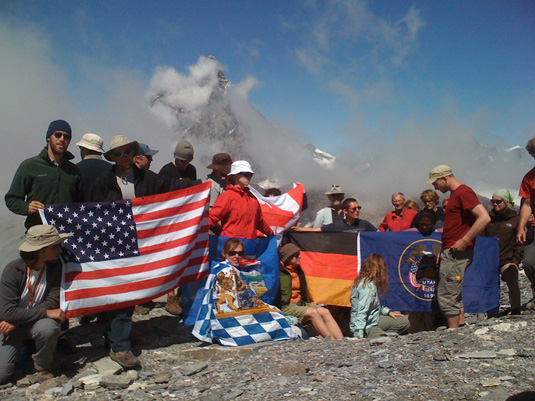Why Study Geology?

Student participants from three universities and three countries attending the 2009 summer field school to the Swiss Alps led by Professors Bernd Lammerer and Anke Friedrich (© A. Friedrich).
What is Geology?
The active planet Earth has been involved in many physical and chemical processes since 4.5 billion years ago. For human beings, the Earth is a habitat with traffic routes (roads, tunnels, etc.), buildings (dams, large buildings), suppliers of raw materials (ores, rocks and soils, energy resources), storages and filters (groundwater, effluent), landfills (waste, chemical and radioactive waste), risks (earthquakes, volcanoes, landslides) or endangered objects (coastal protection). Geology is concerned with the history of the Earth, the natural processes on its surface and in its interior, and with the development of life.
Applied aspects concern topics as engineering geology, hydrogeology, and economic geology. Geology requires a broad mathematical and scientific education and the willingness to carry out field work and laboratory work.
Special opportunities to develop important skills
Students learn how to deal with the complex interactions of various global and local processes. In the early stages they acquire the ability to interpret complex data sets. Field data are always incomplete and can not be addressed by simple formulas. Nevertheless, important conclusions can be drawn. In addition to a broad fundamental knowledge, creativity, observational skills, and recognizing the limits of interpretation are required traits for a geologist. Off-road field work in any climate, carrying rock samples in a backpack, demands the ability to endure hardships. Geological bodies are of large dimensions and geological processes run at low speeds over long periods. Geologists develop a good spatial sense and the ability to think in large structures and long time frames.
Many field sites are in remote areas and among different cultures. Language skills, flexibility, teamwork and knowledge of cultural sensitivities are valuable for field trips and courses.
Bachelor and Master field courses 2020, southern Spain. Drone footage and movie by Apoorv Avasthy.

